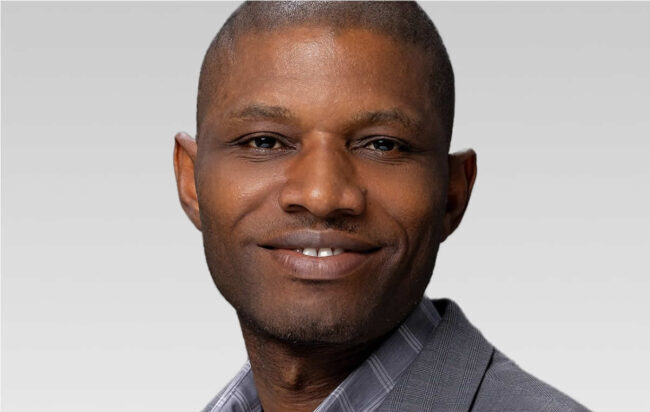As the global community makes strides in advancing education through innovative approaches, a leading expert in STEM education, Adesola Adetunji, has disclosed how he is transforming education in Nigeria.
Speaking about his groundbreaking work as the Founder and Chief Education Officer (CEO) of DEMSWORLD Academy, Adesola Adetunji details how he has integrated Science, Technology, Engineering, and Mathematics (STEM) into the school curriculum while staying true to the local culture and addressing community-specific challenges of students.
“At DEMSWORLD Academy, we believe that education must not only prepare students for the future but must also resonate with their realities,” Adesola Adetunji began.
“For too long, there has been a huge disconnect for educators and students in engineering education in Nigeria, often leaving students unable to connect deeply with the concepts. This disconnect creates an unhealthy apathy as students progress further, and this often leads to them swerving off in non-STEM fields. I have been a thought leader with a passion to change this.”
Adetunji explained that under his leadership, DEMSWORLD Academy has gone beyond the national school curriculum by creating an Engineering Design Laboratory, which serves as the hub of their STEM activities.
In this space, students engage in weekly hands-on projects, applying engineering principles to solve practical problems from a very young age. “Through these activities, we are not only teaching technical skills but also fostering creativity and critical thinking,” he noted.
ALSO READ: A christmas miracle Christmas – a true story
However, it was Adetunji’s innovative approach to culturally relevant engineering design that truly set DEMSWORLD Academy apart. He described how he shifted the focus of engineering projects to reflect students’ diverse backgrounds and local realities.
“I realised that using foreign examples to teach engineering concepts wasn’t effective,” Adetunji said. “The students couldn’t relate to them. That’s when I started framing engineering challenges around community problems and cultural contexts.”
One of the standout projects at DEMSWORLD Academy is a paper bridge construction challenge, which Adetunji described as a breakthrough moment. “The students used locally made paper to design and construct bridges,” he explained.
“This wasn’t just a technical exercise; it was a way to connect engineering principles to something they could see, touch, and understand.”
Adetunji emphasised the transformative impact of such culturally relevant projects. “When students see engineering as a tool to solve problems in their own communities, they develop a genuine interest in it,” he said. “We’ve seen a noticeable increase in student motivation, engagement, and even enrolment in STEM-related fields.”
Beyond bridge construction, Adesola Adetunji has led students in building water filtration systems and mechanical designs, further embedding real-world problem-solving into the curriculum.
“These projects teach critical skills like teamwork, creativity, and problem-solving,” he said. “Every week, the Engineering Design Laboratory comes alive with excitement and innovation.”
Adetunji’s efforts extend beyond students to include the professional development of teachers. Since 2020, he has organised training programs to equip educators with the tools and knowledge to deliver high-quality STEM education.
“I provide teachers with strategies to make engineering design inclusive and culturally relevant,” he shared. “This ensures that our STEM education isn’t just about technology—it’s about equity and inclusion.”
These teacher training workshops draw heavily from Adetunji’s own academic background. “During my Master of Education at the University of the People, I learnt how to advance teaching practices, particularly for elementary and middle schools,” he said. “I’ve incorporated those lessons into a portfolio of professional development resources for K-12 educators.”
Adetunji’s commitment to culturally relevant STEM education has turned DEMSWORLD Academy into a model for innovation in Nigeria. “Our approach has inspired not only students but also teachers,” he said. “They now see engineering as a transformative force that can directly impact lives and communities.”
The results of Adetunji’s work are evident. Many students from DEMSWORLD Academy have gone on to pursue careers in STEM fields, a testament to the effectiveness of the program. “Seeing our students succeed and envision themselves as engineers or scientists is the ultimate reward,” he said.
He reflected on the broader implications of his work: “What we’re doing at DEMSWORLD Academy proves that education can be both global and local. You don’t have to choose one over the other.”
Adetunji’s innovative vision has earned DEMSWORLD Academy widespread recognition for its inclusive approach to STEM education. “Our goal is to prepare students not just for exams but for the future of work,” he stated. “And that future must include solutions to the challenges we face in our own communities.”
As a final thought, Adetunji shared his hope for the future of education in Nigeria and beyond. “I want to see more schools adopting culturally relevant approaches to STEM,” he said. “When students see themselves in their education, they’re more likely to engage, succeed, and lead.”






